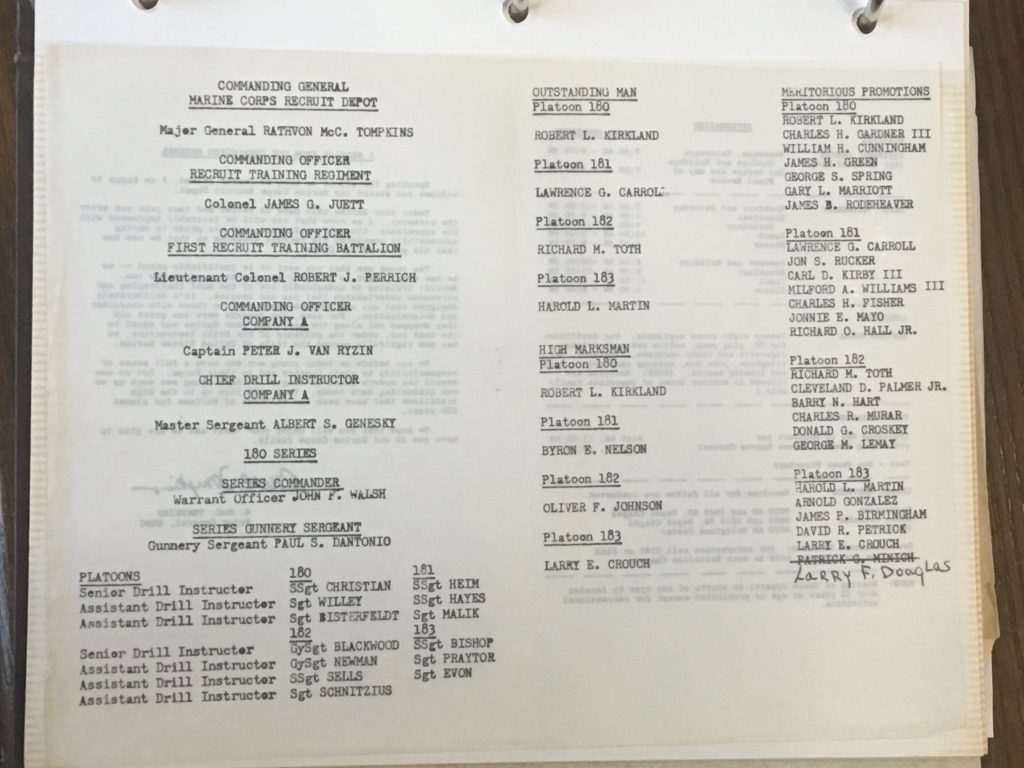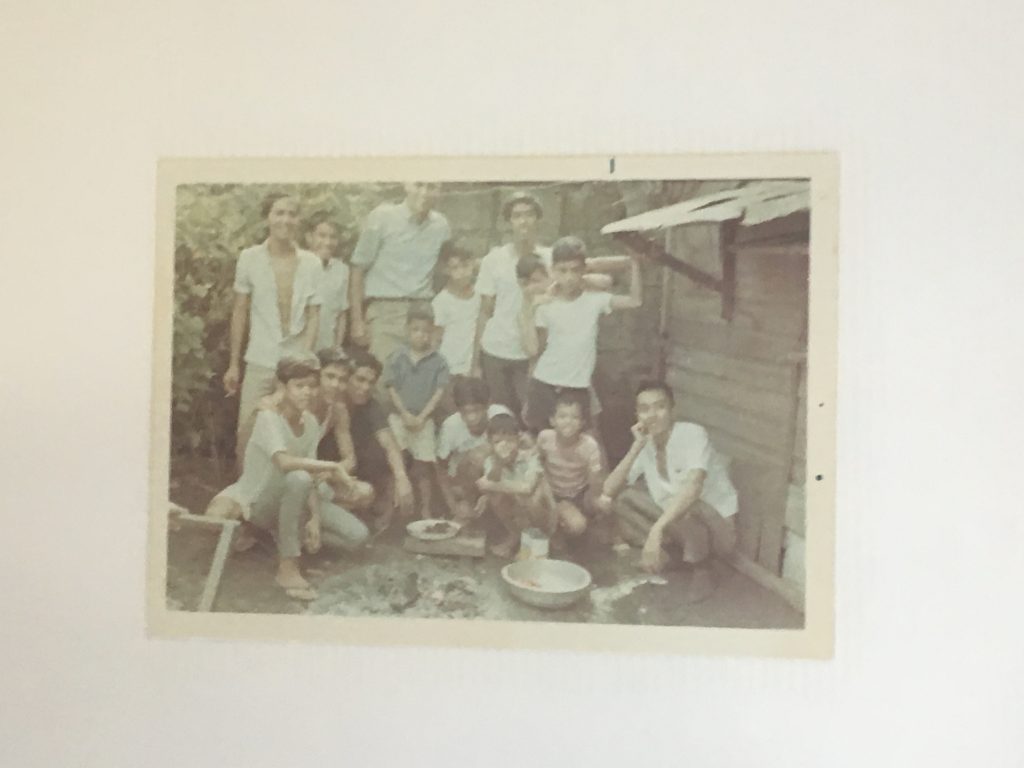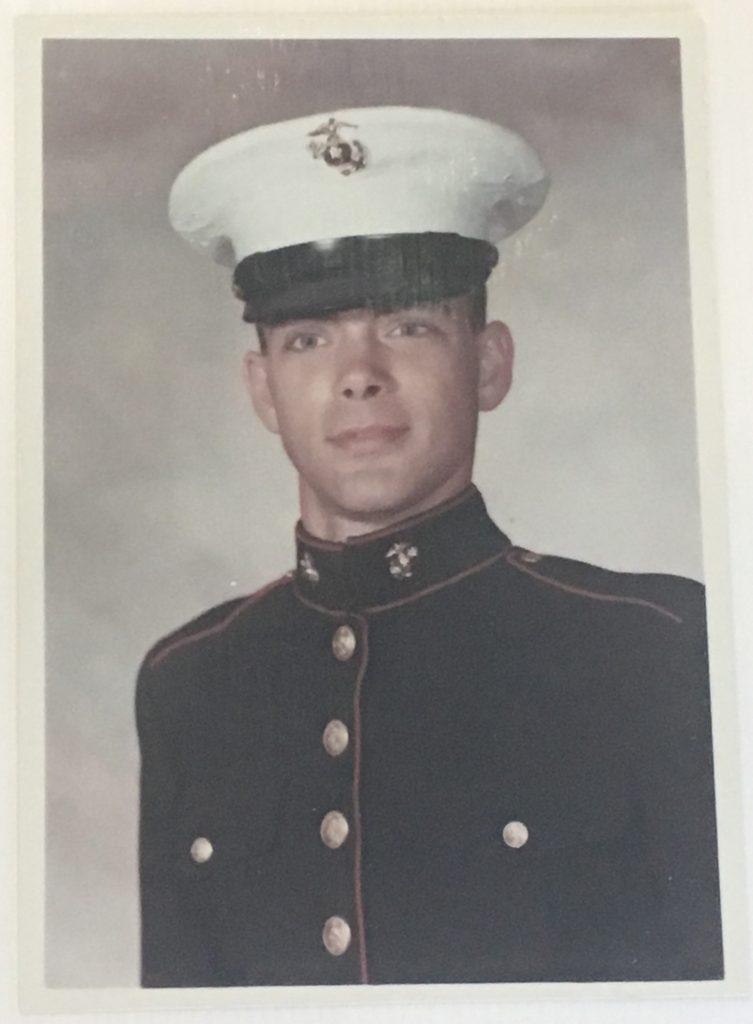
Interview Audio
https://soundcloud.com/cleaborn-clay-turner/kirkland-interview/s-PJrJx
Transcript
Interview Analysis
My interview with Sergeant Robert Kirkland about the Vietnam War was very informative, not only in relation to my project but also as a reflection on one man’s life and the American military at the time. A lot of time has passed between the Vietnam War and now, but I can clearly see the parallels between conditions then and now. In the late 60’s and early 70’s, America’s domestic situation sat on the edge of a knife while we fought an unpopular overseas war with practically no end in sight. This is seen with the conflict within President Lyndon Johnson’s own administration on the domestic situation and the break of Martin Luther King with the liberal establishment over the war. Today, our domestic situation is similarly polarized with numerous wars overseas, with Afghanistan and Iraq both drawing comparisons to Vietnam. Therefore, I feel that it is important to reflect upon the past to perhaps gain a better understanding of the present.
Although Mr. Kirkland’s memory faltered at times, he conveyed to me a roughly chronological narrative about his time in Vietnam as a technician in the United States Marine Corps.
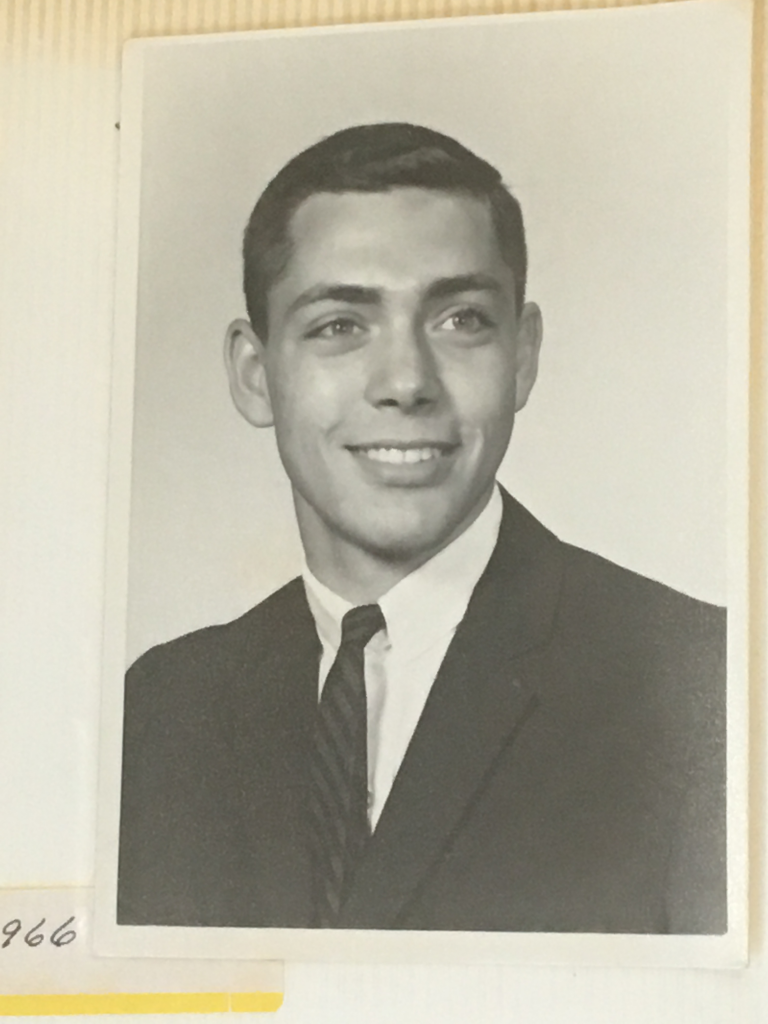
His story began in 1965 when his draft notice came to fill the quotas for the U.S. military in Vietnam. After being called up, Mr. Kirkland suggested that he work as a technician and put his electrical engineering degree to use. After extensive training, would be assigned to become a communication technician. This would be an important job, as he would be entrusted with top secret clearance. Sent off to Vietnam on October 1967, Sergeant Kirkland was assigned to Da Nang, the headquarters at that time for both the first Marine Air Wing and the first Marine Division Infantry. He would stay there for the duration of the war while also being taken out to other bases in Vietnam to help out with their technology.
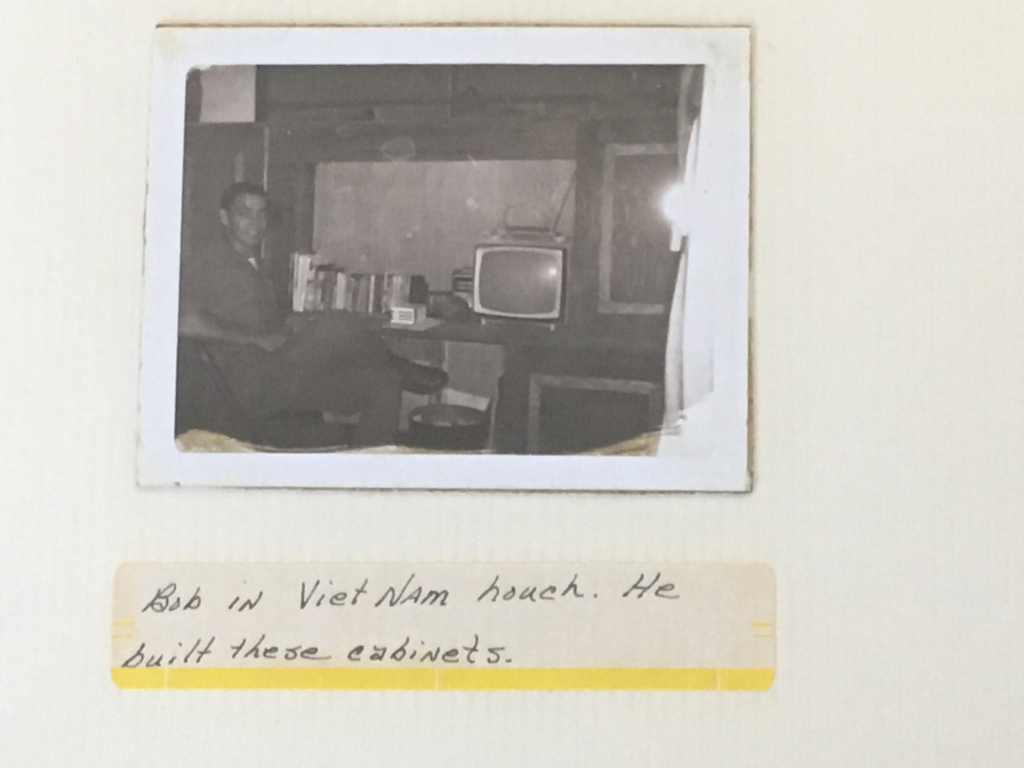
Sergeant Kirkland would spend four years in Da Nang with occasional R&R and missions to assist faraway U.S. bases. He would see the most fierce fighting during the Tet Offensive at the Siege of Khe Sanh, which cost many lives but ended indecisively. Sergeant Kirkland was called to Khe Sanh to repair the base’s comm center that had been damaged by rockets. The battle would very bloody, and Sergeant Kirkland observed constant artillery and rocket bombardment by North Vietnamese and bombing by Americans. Meanwhile, international events affected the lives of Sergeant Kirkland and thousands of other soldiers. The Paris Peace Accords in particular had a huge effect on the soldiers in Vietnam. The negotiations were a hard-fought process to try to win a peace, and the United States, at the encouragement of the Soviet Union, acceded to North Vietnam’s demand that bombings should stop so the negotiations could start. Sergeant Kirkland and the soldiers on the ground did not trust the peace process, and they were very wary of the North Vietnamese, who were visibly building up their forces on the DMZ. This was after the first Tet Offensive, so battle was fresh on everyone’s minds. Many of the soldiers on the ground were very frustrated that their warnings were put aside due to events happening way above them by high-ranking officials in Paris. When the negotiations dragged on and the North Vietnamese attacked, Sergeant Kirkland and many others were feeling increasingly frustrated. Although U.S. forces killed thousands of NLF and North Vietnamese soldiers and won many battles, the North Vietnamese persisted in their efforts. The war and its costs would begin to be felt domestically during the Tet Offensive when the issue of the war would become increasingly partisan. By the time Sergeant Kirkland returned to the states in 1971, the domestic situation in the United States had worsened considerably. This is encapsulated by an encounter Sergeant Kirkland had on his return to the states, at a California airport. He and others would be met right off of the plane by protesters at the airport, which understandably annoyed many of the returning soldiers. As the soldiers watched, the Hell’s Angels would arrive and clash with the protesters. The soldiers would cheer and hooray as they watched the two sides fight it out, until the fight was broken up by the police. These descriptions of conflict in the 1970s conjure up images of more recent street violence between protesters and counter protesters in places such as Portland and Charlottesville. The biggest difference today is the ease of recording these events and the lightning-fast spread of information.
The Vietnam Was left its scars on many people, and Mr. Kirkland is no exception. This is not limited to physical scars and the debilitating effects of Agent Orange, which Mr. Kirkland still feels to this day. He also felt shame and guilt over how America had handled the war and how Americans had abandoned their allies in the past. The situation after the war in Vietnam was also a point for chagrin for Mr. Kirkland, as he was very much aware of events such as the refugee crisis and the Khmer Rouge takeover of Cambodia that killed many people and tore apart families in the war’s aftermath. He particularly remembers a Catholic orphanage that he visited to help the children, playing with them and take them candy. Their situation after the U.S. withdrawal and the Fall of Saigon would seem understandably grim. Still, it is intriguing how relations between the United States and Vietnam have improved since the war, and how Vietnam War veterans often return to Vietnam to visit their old stomping grounds. In fact, it was through a returning veteran named Richard Brown who made a series of videos on Youtube that I was able to get a better perspective on Da Nang, Khe Sanh, and even the old Catholic orphanage that Mr. Kirkland described to me. It gives me some degree of hope that the current wars the U.S. is involved in can be resolved somehow, though perhaps differently than Vietnam, and that we can someday get on with our former enemies as amiably as we do with the Vietnamese currently. The veterans of these wars deserve as much for their sacrifice.
Further Readings
Radvanyi, Janos. (1978). Delusions and Reality. Gateway Editions.
Wiest, Andrew, Barier, Mary Kathryn, & Robins, Glenn. (2010). America and the Vietnam War – Re-examining the Culture and History of a Generation. Routledge.
Lawrence, Mark Atwood. (2014). “The Vietnam War – An International History in Documents“. Oxford University Press.
Brown, Richard. “Old Catholic Orphanage on Da Nang’s East Sea Beach.” Youtube, January 22, 2014, https://www.youtube.com/watch?v=rFaTaJAy46E.
